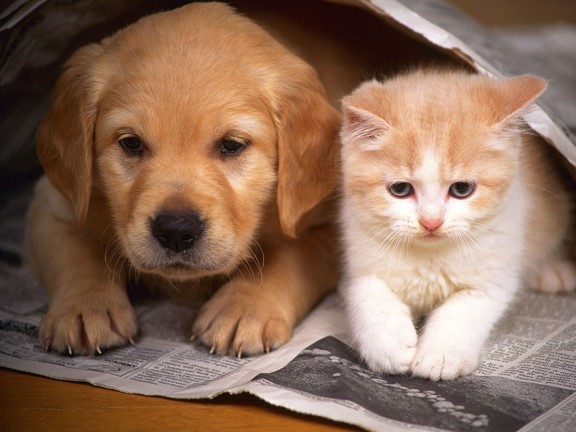It can be difficult to spot the signs when your pet needs to see the vet.
Look out for certain situations when it is important not to delay and to arrange an appointment as soon as possible.
Difficulty in breathing – This must be treated as a serious emergency. If your pet is having trouble breathing or is making alarming noises when they breathe, you need to visit your vets immediately.
Coughing – This may or may not be an emergency. It can be caused by an infection such as Kennel Cough or it could be a sign of something much more serious, such as, early pneumonia or a heart problem. When in doubt, the safest solution is to consult your vet.
Fits – Although a single fit (seizure) is not likely to be life threatening, it may be the result of epilepsy or heart problems or, sometimes, poisoning with potentially fatal consequences and it is best to get this checked.
Collapse or severe weakness – These can be signs of major problems, such as internal bleeding, heart failure, anaphylactic shock, poisoning or severe arthritic pain. All of these problems require urgent veterinary attention.
Loss of use of hind legs – This is especially common in breeds with short legs and long backs such as Dachshunds and can be a sign of damage to the spinal cord. This is usually very painful and rapid treatment can make a big difference to the outcome.
Severe pain – This is always an emergency. If your pet is vocalising, panting, limping badly or exhibiting other signs of severe pain, do not delay- get to a vet immediately.
Gastrointestinal Signs – Restlessness, unsuccessful attempts at vomiting and abdominal distension are all symptoms of severe gastric pain. These signs could even indicate a life-threatening twisted stomach with dilatation or bloat.
Major Haemorrhage or trauma – Profuse bleeding is an emergency. However, pets that have fallen from a height, been involved in road traffic accidents, or been in fights with other animals may appear unharmed at first despite suffering major internal injuries or fractures that are not immediately apparent and so they should be checked by a vet.
Protracted Vomiting and/or Diarrhoea – This is an emergency if the liquid produced is significantly bloody. A dog or cat that vomits once or has a single loose bowel movement may not require any treatment however, repeated vomiting and diarrhoea can rapidly lead to life-threatening dehydration and may be signs of major problems such as gastrointestinal obstruction and needs treatment.
Struggling to Urinate – This may mean a bladder infection, which is painful but not life-threatening. However, it could also mean an obstruction of the urinary tract by bladder stones which requires extremely urgent veterinary treatment.
Not Eating or Drinking – Some dogs and cats may occasionally miss a meal every now and again. However, those that go a day or longer without eating are almost always unwell and they usually won’t be drinking either, so dehydration can set in quickly.
Poisoning– If you know your pet has eaten poison don’t wait for any effects to start, visit the vet immediately and take any packaging with you as it will help the vet. Common poisons include chocolate, rat bait, grapes, raisins, chewing gum and human medications. Cats are very sensitive to paracetamol, permethrin and lilies.



